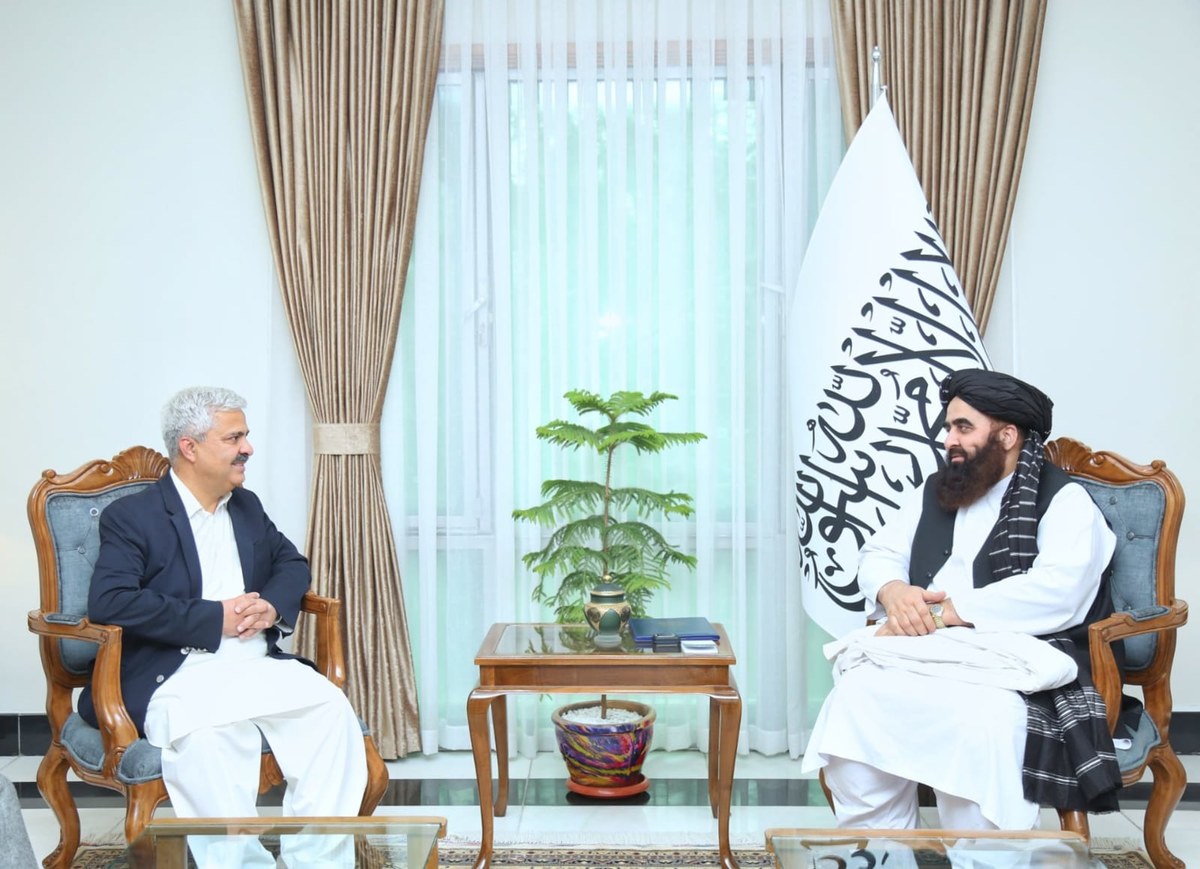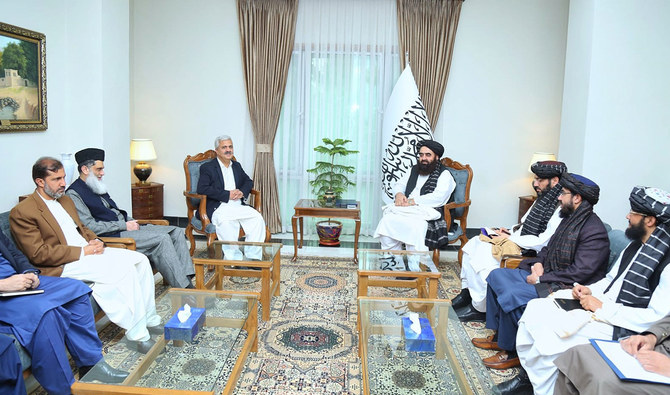PESHAWAR: Pakistani and Afghan officials have pledged to resolve issues relating to bilateral trade and travel, the Afghan foreign ministry said as talks between the two sides in Kabul entered a third day today, Wednesday, amid heightened tensions over Islamabad carrying out cross-border airstrikes against suspected militants.
The neighboring countries have traded blame in recent months over who is responsible for a recent spate of militant attacks in Pakistan. Islamabad says the attacks are launched mostly by members of the Tehrik-e Taliban Pakistan (TTP) who operate from safe havens in Afghanistan. Kabul’s ruling Taliban deny this and blame Islamabad for not being able to handle its own security challenges.
Tensions have also worsened as Islamabad began expelling more than a million undocumented foreigners, mostly Afghans, from Nov. 1 last year, amid the row over accusations that Kabul harbored Pakistani militants.
The diplomatic tensions over the last few months have also led to economic losses, as key border crossing for trade and travel have been intermittently closed, hitting trade-dependent communities and industries.
On Monday, a Pakistani delegation led by Commerce Secretary Khurram Agha arrived in Kabul to discuss matters relating to bilateral trade. The team met acting Afghan Foreign Minister Maulvi Amir Khan Muttaqi on Tuesday.
“The purpose of the visit was to strengthen commercial, transit and economic relations between the two countries. The two sides highlighted main obstacles and ways to tackle those hurdles,” the Afghan foreign ministry said in a statement.
“Both sides pledged to tackle the existing hurdles in the transit areas with joint and concerted measures.”

Commerce Secretary Khurram Agha (left) meets Afghan Foreign Minister Maulvi Amir Khan Muttaqi (right) on March 26, 2024, in Kabul. (Photo courtesy: Afghan Embassy Islamabad)
Agha thanked the Afghan government for inviting the delegation to Afghanistan and said Pakistan wanted to find solutions to “all problems in trade and commerce areas at the earliest,” according to the Afghan foreign ministry statement.
Along with strengthening trade relations between the two sides, issues surrounding the travel of passengers, patients, and businessmen is also being discussed during the ongoing meetings.
On Saturday, ahead of the talks, Hajji Usman, a member of the Nangarhar Chamber of Commerce and Industry, said security issues between the two countries were impeding the smooth flow of trade.
“I don’t think bilateral trade can move forward in the current state of affairs,” he told Arab News. “First, both countries need to restore confidence and pave ground for boosting trade.”
Akhundzada Abdul Salam Jawad, an Afghan commerce ministry spokesperson, accused Islamabad of complicating bilateral trade issues.
“Talks will focus on unnecessary delay in movement of goods’ trucks, red tapism in preparing documents for transit of heavy containers and Islamabad’s latest tightening of rules for Afghan truckers to get Pakistani visas,” Jawad said ahead of talks.
A year ago, Jawad said, almost 1,500 to 2,000 trucks from Pakistan entered Afghanistan on a daily basis, but “undue restrictions by Pakistan’s border and trade authorities have made business nearly impossible by introducing new rules,” bringing down the number of Pakistani trucks to about 700.
Meanwhile, Afghanistan’s business with Iran through the Chabahar Port had witnessed a boost due to the trade complications with Pakistan, Jawad added.
“We will discuss with Pakistani side either bureaucratic or infrastructural hurdles for trade and businesses at the border points with impediments and massive congestion, often closure and reopening of crossing points for trade, low scanning capacity, hurdles in trade movement such as transportation of perishable goods, which often result in massive financial losses to our businessmen,” he said.
















